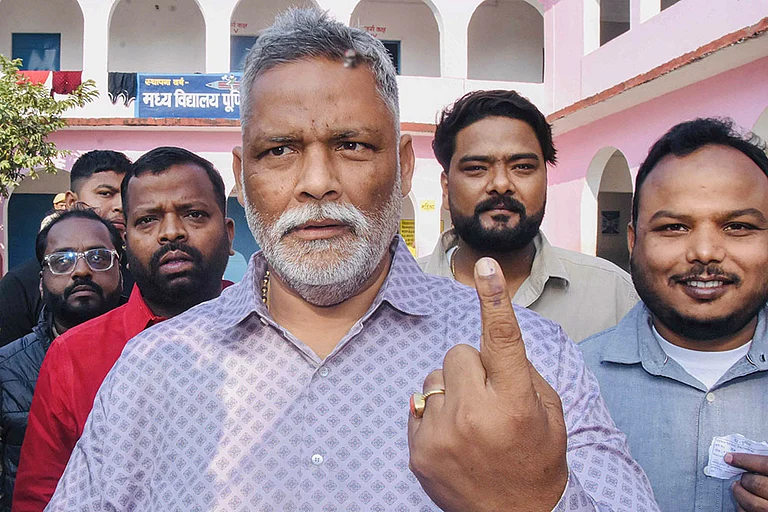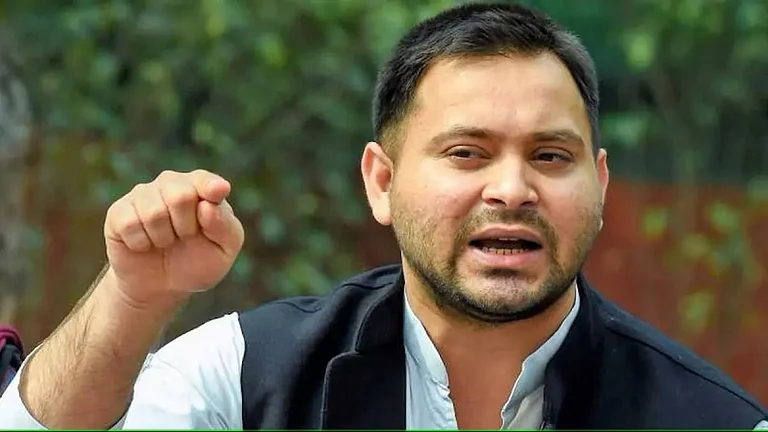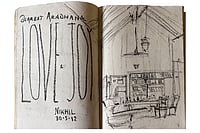
Phase one of the Bihar Election 2025 is underway in Mokama on November 6, 2025.
Mokama, Patna’s river-bank constituency, has become a mirror to the state’s legacy of strongmen in politics.
This dynamic was brought to the fore with the arrest of Anant Kumar Singh following the killing of Dularchand Yadav, a former gangster and close aide to Lalu Prasad Yadav and a Jan Suraaj worker last week.
With Phase One of the Bihar Election 2025 currently underway, Mokama, located in the Patna district, has become a mirror of the state’s legacy of strongmen in politics. At the heart of this controversy are two Bhumihar leaders: Anant Kumar Singh, also known as Chhote Sarkar, and Surajbhan Singh.
The long-standing feud between the two came to the fore once again with the killing of Dularchand Yadav, a former gangster and close aide to Lalu Prasad Yadav and a Jan Suraaj worker, last week.
Surajbhan Singh, although disqualified from direct contestation following a 2008 conviction for a 1992 murder, remains in the political fray through his wife, RJD’s Mokama candidate, Veena Devi.
Currently a JDU candidate, Anant Singh is a three-time MLA from Mokama. He is currently under arrest and being investigated for Yadav’s murder. He has previously faced several legal cases: a total of 38 criminal charges, including seven murders, eleven attempts to murder and four kidnappings.
However, the residents of Mokama and the surrounding areas speak of a different side to Singh, emphasising that they are likely to vote for him even while he is jailed.
“Only if he stops finding solutions for the people, then only will they stop giving them votes. Right now, no one will stop voting for them,” says 38-year-old Chandramohan Singh, who owns a dhaba on the highway near Barh. This is the former MLA’s native place.
The dhaba owner adds: “Even if he is in jail, they will—wait and watch— they will win by even more votes. Whenever he has gone to jail, he has gotten more votes.”
Singh’s reaction decodes why people here have such a fierce loyalty towards the “Chote Sarkar,” who is fighting the Bihar elections this time from Mokama, a constituency he has represented four times already. He is currently in judicial custody for the murder of the 76-year-old former gangster. The murder that happened just a few days before the first phase of polling in the state has now cast a dark shadow on the current government, particularly at a time when the NDA is invoking “Jungle Raj” in the context of the 1990s Bihar, when Lalu Prasad’s RJD was in power.
Following the incident, the Election Commission of India flagged Mokama for special supervision, ordering a crackdown on illegal weapons and directing extra observers to the constituency.
Despite being incarcerated or legally restricted, both strongmen continue to exert influence. Anant Singh, though jailed, remains the face of the JD(U) in Mokama via his wife’s campaign.
Surajbhan Singh, likewise, is campaigning behind the scenes — his wife standing as the candidate. In effect, the “strongman” model has evolved into a networked model of influence.
In these badlands, where strongmen have ruled politics for a long time and had the unflinching support of the people because they are Robin Hood figures who maintain that instant solution and justice system here, caste remains at the root. Singh, who thinks Anant Singh is the saviour of the place, is a Rajput. While he denies any caste loyalties in these parts, he does talk about the fact that at the funeral procession of Dularchand Yadav, the community abused Bhumihars verbally, and that’s not right. The old rivalries between the upper castes and the intermediary castes, especially the Yadavs, remain and sometimes manifest themselves in gang wars.
What makes Mokama especially critical in 2025 is that the Bhumihar community — although a small percentage of the electorate — acts as a pivotal force in this constituency.
Both major alliances are acutely aware that winning or losing here has symbolic and practical ripples across the state’s electoral map. As polling begins in 121 seats in the first phase (including Mokama) on November 6, 2025, the contest here will be closely watched.





























